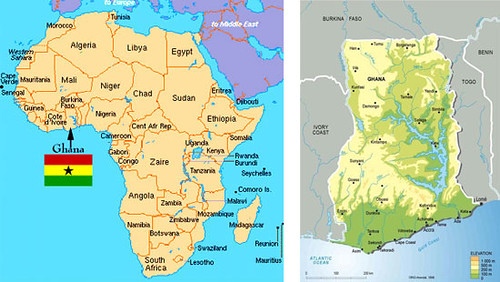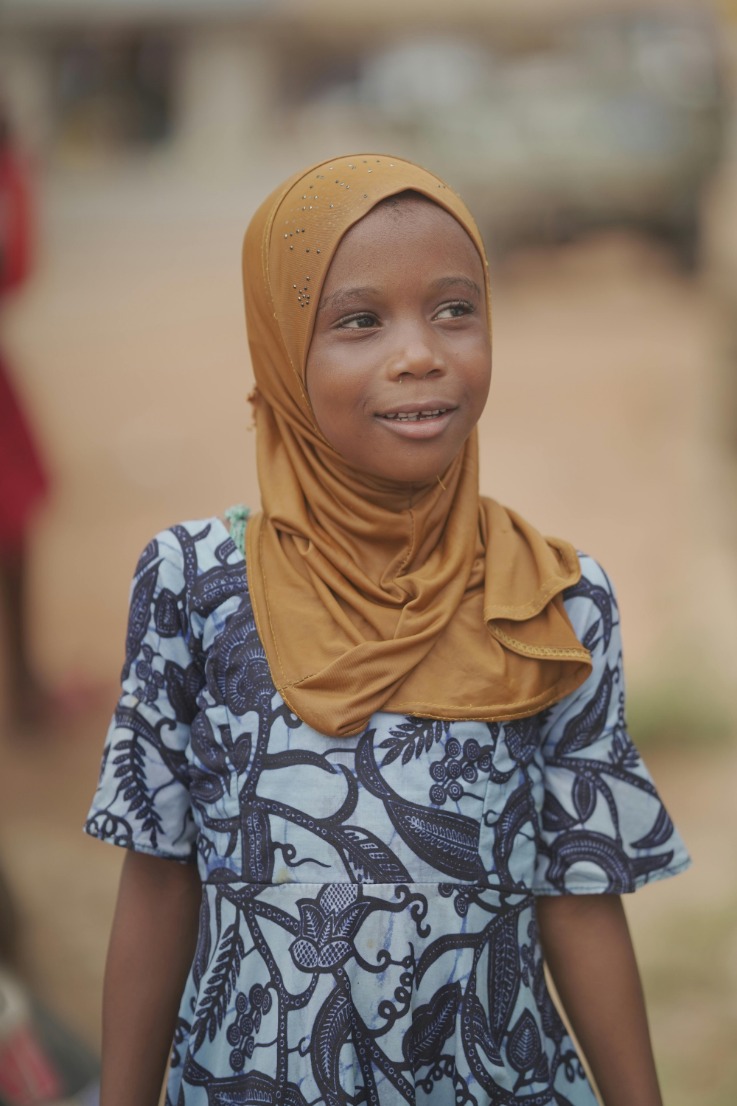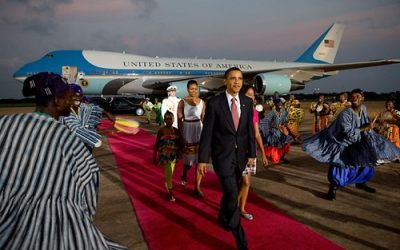Historical Background of Accra
Accra, the vibrant capital city of Ghana, boasts a rich historical background that reflects its evolution from a small fishing village to a thriving metropolis. Originally inhabited by the Ga people, Accra has been a center of trade and cultural exchange for centuries. During the colonial period, it became an important hub for British administration, which significantly shaped its urban development. Today, Accra stands as a symbol of Ghana’s progress and diverse heritage, blending history with modern growth.
Pre-Colonial Era
Accra, the capital of Ghana, has a rich historical background that dates back to the pre-colonial era. Originally a small fishing village, it grew over centuries into a prominent center of trade and culture among various local ethnic groups. The Ga people, who predominantly inhabited the area, established a structured society with their own traditions, political systems, and social organization long before colonial influences took hold.
During the pre-colonial period, Accra served as a vital trading hub, connecting inland regions with coastal areas. It was known for its markets, craft industries, and vibrant community life. The strategic location along the Gulf of Guinea facilitated interactions with traders from other parts of West Africa, fostering cultural exchange and economic growth.
In this era, the area was characterized by several small kingdoms and chiefdoms, each governed by local leaders who maintained order and managed trade. These communities built notable structures and developed customs that reflected their identity and social structure. The resilience and rich cultural heritage of Accra during the pre-colonial era laid the foundation for its subsequent growth into a modern metropolis.
Colonial Period
Accra, the capital of Ghana, has a rich historical background that dates back centuries. During the colonial period, Accra was an important hub for European powers, particularly the British, who established significant influence over the coastal region. In the late 19th century, the area became a key administrative and trading center under British control, serving as the seat of government for the Gold Coast colony. The development of infrastructure, including roads and port facilities, was accelerated during this era to enhance trade and economic activities. Accra’s strategic location and burgeoning importance as a colonial town laid the foundations for its modern role as Ghana’s political and economic center. The colonial period also saw the blending of indigenous culture with European influences, shaping the city’s unique identity today.
Post-Independence Development
Accra, the capital of Ghana, has a rich historical background marked by its development from a small fishing village into a prominent urban center. Originally inhabited by the Ga people, Accra’s strategic location along the Gulf of Guinea facilitated trade and settlement over centuries. During the colonial era, it became a significant administrative and commercial hub under British rule, which introduced modern infrastructure and institutions. Post-independence, Ghana gained sovereignty in 1957, and Accra transformed rapidly into the political, economic, and cultural heart of the nation. The city experienced significant urbanization, infrastructure development, and modernization efforts aimed at accommodating the growing population and enhancing national identity. As the capital, Accra continues to evolve, reflecting Ghana’s aspirations for progress and development in the modern era.
Geographical Location and Urban Layout
The geographical location and urban layout of Accra, the capital of Ghana, play a crucial role in shaping the city’s development and character. Situated along the Gulf of Guinea on the southern coast of Ghana, Accra benefits from its strategic coastal position, which facilitates trade and connectivity. Its urban layout reflects a blend of traditional and modern influences, with bustling markets, expanding residential neighborhoods, and vibrant commercial districts, creating a dynamic and influential urban environment. Understanding these geographical and urban patterns provides valuable insights into the city’s growth and cultural significance.
Geographical Features
Accra, the capital of Ghana, is situated along the Gulf of Guinea on the southern Atlantic coast of West Africa. Its geographical location provides it with a strategic position for maritime trade and access to coastal resources. The city is characterized by a gently undulating terrain with some hills, notably the Akwapim-Togo mountain range to the east, influencing local climate and settlement patterns.
Urban layout in Accra blends modern infrastructure with traditional areas, featuring key commercial centers, government buildings, and residential neighborhoods. The city sprawls across a relatively flat area with organized road networks, ports, and markets that facilitate economic activities. Its urban design reflects a combination of colonial influences and contemporary development, with designated zones for commerce, industry, and residential districts.
Ghana’s diverse geographical features include coastal plains, lush forested areas, and rolling hills. Accra’s proximity to the Atlantic Ocean grants it extensive beaches and waterfronts, while inland regions are marked by fertile farmland and natural reserves. These geographical features play a significant role in shaping the city’s climate, economy, and cultural landscape, making Accra a vibrant metropolis with a unique geographical identity.
City Planning and Districts
The capital of Ghana, Accra, is situated along the Atlantic Ocean coast in the southeastern part of the country. Its geographical location offers a strategic advantage for trade and communication, characterized by a mix of coastal plains and inland hills. The urban layout of Accra reflects its growth from a small fishing village into a bustling metropolis, with a combination of modern structures and traditional markets. City planning in Accra emphasizes functional zones, including residential areas, commercial districts, and industrial zones, often interwoven in a way that accommodates rapid urbanization. The city is divided into various districts and neighborhoods, such as Osu, Labone, and West Legon, each with distinct identities and amenities. These districts help organize the city’s services and infrastructure, fostering a sense of community and facilitating effective governance and development planning.
Transportation Networks
Accra, the capital of Ghana, is strategically situated along the Gulf of Guinea on the Atlantic Ocean, which provides it with a significant coastal location. The city sprawls across an extensive area, with a mix of urban and suburban zones, reflecting its rapid growth and expansion. Its geographical positioning has historically made it a hub for trade and maritime activities, fueling economic development and urbanization.
The urban layout of Accra is characterized by a blend of colonial-era architecture, modern buildings, and informal settlements. The city is divided into various neighborhoods, each with distinct features, from the bustling city center to quieter suburban areas. The central business district is densely built, with commercial, administrative, and cultural institutions, while peripheral areas tend to be more residential and industrial.
Transportation networks in Accra are well-developed yet continuously evolving to accommodate the city’s increasing population. The city features an extensive road system with major highways connecting key districts and facilitating movement within the city and to other parts of Ghana. Public transportation options include shared taxis, tro-tros (minibuses), and a growing number of commuter buses. Additionally, efforts are underway to improve infrastructure with the development of new roads, bridges, and transit systems to enhance connectivity and reduce traffic congestion.
Political and Administrative Significance
The political and administrative significance of Accra, the capital of Ghana, lies in its role as the country’s central hub for governance, decision-making, and national identity. As the seat of government, Accra hosts key political institutions, including the presidential palace, parliamentary buildings, and numerous ministries. Its administrative functions streamline the local and national governance processes, making it a critical city for maintaining stability, development, and political coherence within Ghana.
Capital Status and Governance
Accra, the capital city of Ghana, holds substantial political and administrative significance as the center of government and policymaking in the country. It hosts key government institutions, including the Office of the President, Parliament House, and various ministries, making it the hub of political activities and decision-making processes. As the capital, Accra is also the administrative heart, overseeing the implementation of national policies and governance at both national and regional levels. Its status as the capital symbolically represents Ghana’s national identity and sovereignty.
Accra’s role as the capital confers it with a unique status that influences its development and infrastructure, often positioning it as the country’s economic and cultural hub as well. The city’s governance structure includes local government authorities that manage municipal affairs, ensuring the delivery of services and urban development. Overall, Accra’s political and administrative significance, coupled with its capital status, underscores its importance in the governance, development, and unity of Ghana.
Administrative Structure
Capital Ghana, Accra, holds substantial political and administrative significance as the heart of the country’s governance. It serves as the central hub for national political activities, government institutions, and diplomatic missions. The administrative structure of Accra is organized to efficiently manage urban development, public services, and legislative functions, reflecting its role as the political epicenter.
- Accra hosts the Presidential Palace, Parliament House, and various ministries, making it the focal point for national decision-making.
- The city’s administrative framework includes regional and local government bodies responsible for urban planning, public utilities, and community services.
- Efficient governance in Accra facilitates political stability, economic development, and the implementation of national policies.
- The administrative divisions within Accra include several suburbs and districts, each managed by local councils to address specific community needs.
- Overall, the political and administrative structure of Accra ensures the smooth functioning of Ghana’s governance system, reaffirming its role as the nation’s political capital.
Embassies and High Commissions
The capital city of Ghana, Accra, holds significant political and administrative importance as the center of government and decision-making. It hosts key government institutions, including the presidential palace, parliamentary chambers, and various ministries responsible for national administration. Embassies and high commissions from numerous countries are situated in Accra, facilitating diplomatic relations and international cooperation. These diplomatic missions play a vital role in fostering economic partnerships, cultural exchanges, and diplomatic dialogue, thereby enhancing Ghana’s global connectivity. The presence of these diplomatic establishments underscores Accra’s status as a political hub and an important center for foreign relations in the West African region.
Economic Overview
Capital Ghana, also known as Accra, plays a vital role in the country’s economic landscape. As the economic hub of Ghana, it features a diverse economy driven by sectors such as commerce, manufacturing, and services. The city’s strategic location, vibrant markets, and ongoing infrastructure development contribute significantly to Ghana’s overall economic growth and stability. Understanding the economic overview of Capital Ghana provides insight into the nation’s progress and future potential.
Key Industries
Capital Ghana, known as Accra, is a vital economic hub in West Africa, driving the country’s growth through diverse industries and robust economic activities. The city’s economy is characterized by a mix of traditional sectors and modern industries that contribute significantly to national development.
- Finance and Banking: Accra hosts the headquarters of major banks and financial institutions, facilitating lending, investment, and financial services vital for economic stability.
- Trade and Commerce: As a commercial center, Accra bustles with markets, retail outlets, and trading companies that engage in domestic and international trade.
- Manufacturing: The manufacturing sector includes textiles, food processing, and construction materials, supporting both local consumption and export.
- Real Estate and Construction: Rapid urbanization drives growth in real estate development, including residential, commercial, and infrastructure projects.
- Technology and Innovation: An emerging sector with startups and tech hubs fostering innovation, digital solutions, and entrepreneurship.
Trade and Commerce
Ghana’s economy has experienced steady growth over recent years, driven by diverse sectors such as agriculture, industry, and services. The country is known for its rich natural resources, including gold, cocoa, and oil, which significantly contribute to its GDP and trade activities.
Trade and commerce in Ghana play a vital role in its economic development. The nation maintains active trade relationships with global partners, exporting commodities like gold, cocoa, oil, and cashew nuts. Its strategic location along the Gulf of Guinea facilitates regional trade within West Africa, supported by a network of ports and logistical infrastructure.
The government continues to implement policies aimed at promoting industrialization, attracting foreign investments, and diversifying the economy beyond primary commodities. Ghana’s membership in regional economic communities such as ECOWAS fosters intra-regional trade, enhancing its integration into the broader West African market.
Despite these positives, the economy faces challenges including inflation, currency fluctuations, and infrastructural limitations. Efforts are ongoing to improve trade facilitation, reduce import duties, and enhance export capacities to strengthen Ghana’s position in global commerce and ensure sustainable economic growth.
Markets and Business Districts
Capital Ghana, particularly Accra, serves as a central hub for the country’s economic activities, offering a vibrant environment for markets and business districts. The city boasts a diverse economy driven by sectors such as finance, manufacturing, real estate, and services, contributing significantly to Ghana’s GDP. Markets like the Accra Digital Centre and the Kaneshie Market are bustling centers of commerce, facilitating both local and international trade. The business districts, including the Central Business District and Osu, host numerous corporate offices, banks, and retail outlets, reflecting a thriving entrepreneurial spirit. Overall, Accra’s dynamic economic landscape attracts investments and fosters growth, positioning it as a pivotal economic engine for Ghana.

Cultural and Tourist Attractions
Accra, the vibrant capital of Ghana, offers a rich tapestry of cultural and tourist attractions that captivate visitors from around the world. From historic landmarks to lively markets, the city showcases Ghana’s unique heritage and modern energy. Exploring Accra provides an engaging experience of its diverse traditions, arts, and natural beauty, making it a must-visit destination for travelers seeking both history and entertainment.
Historical Sites
Accra, the vibrant capital of Ghana, is a city rich in cultural and historical significance, offering numerous attractions for visitors. Visitors can explore inspiring sites such as the Cape Coast Castle and Elmina Castle, which narrate the poignant history of the transatlantic slave trade. The W.E.B. Du Bois Center provides insight into Ghana’s role in Pan-Africanism and its influential leaders. For a taste of local culture, the artists’ markets and traditional dance performances showcase Ghanaian heritage. The National Museum of Ghana offers a comprehensive overview of the country’s history, art, and culture, making Accra a captivating destination for those interested in exploring Africa’s historical and cultural roots.
Museums and Art Centers
Accra, the vibrant capital of Ghana, offers a rich blend of cultural and tourist attractions, museums, and art centers that showcase the country’s history and creativity. Visitors can explore the National Museum of Ghana, which features historical artifacts, traditional crafts, and exhibits that highlight Ghana’s diverse heritage. The Arts Centre in Accra is a hub for local artisans, where visitors can browse and buy authentic crafts, textiles, and paintings. For those interested in history, Independence Square, also known as Black Star Square, provides a glimpse into Ghana’s journey to independence and its national pride. Additionally, the W.E.B. Du Bois Center honors the life and legacy of the prominent scholar and activist. Accra’s vibrant markets, such as the Makola Market, offer colorful displays of local textiles, jewelry, and souvenirs, making the city a dynamic destination for travelers seeking cultural immersion and artistic appreciation.
Festivals and Cultural Events
Accra, the vibrant capital of Ghana, is rich in cultural and tourist attractions that offer a unique glimpse into the country’s heritage. Visitors can explore the historic Cape Coast Castle, a significant site from Ghana’s colonial past, and the W.E.B. Du Bois Center, which celebrates the life and contribution of the renowned scholar. The National Museum of Ghana showcases artifacts that reflect the diverse cultures and histories of the nation, making it a must-visit destination for history enthusiasts.
Festivals and cultural events play a vital role in Ghanaian society, and Accra hosts many lively celebrations throughout the year. The Homowo Festival, celebrated by the Ga people, features colorful drumming, dancing, and traditional rituals to mark the harvest season. The Chale Wote Street Art Festival transforms the city into an open-air gallery, featuring murals, performances, and street art that showcase urban creativity. Additionally, the Independence Day celebrations on March 6th highlight Ghana’s journey to independence with parades, music, and cultural displays, attracting both locals and tourists to partake in this national pride.
Educational and Research Institutions
Educational and research institutions play a vital role in the development and progress of Ghana, particularly in the capital city. They serve as centers for knowledge, innovation, and skill acquisition, fostering the growth of a well-informed and talented population. In Accra, the heart of Ghana, these institutions contribute significantly to the nation’s educational excellence and research advancements, shaping the future of the country.
Major Universities
Capital Ghana is home to several notable educational and research institutions, including major universities that contribute significantly to the country’s academic and scientific development.
- University of Ghana: The oldest and largest university in Ghana, offering a wide range of undergraduate and postgraduate programs across diverse fields including arts, sciences, law, and business.
- Kwame Nkrumah University of Science and Technology: Renowned for its focus on science and technology, it plays a vital role in engineering, computing, and technological research.
- University of Cape Coast: Specializes in education, social sciences, and humanities, and is a key institution for teacher training and educational research.
- Ghana Institute of Management and Public Administration: Focuses on applied management sciences, public administration, and leadership training.
- Noguchi Memorial Institute for Medical Research: A leading biomedical research institution dedicated to health sciences and disease control.
Research Centers
Ghana is home to a range of educational and research institutions that play a vital role in the country’s development and knowledge advancement. These institutions provide quality education and conduct essential research across various fields, contributing to Ghana’s social and economic growth.
- University of Ghana: The premier university in Ghana, offering diverse undergraduate and postgraduate programs and engaging in impactful research.
- Kwame Nkrumah University of Science and Technology: Noted for its focus on science and technology education and research, fostering innovation in the country.
- Council for Scientific and Industrial Research (CSIR): A leading research organization conducting scientific research to support industry, agriculture, and health sectors.
- Ghana Atomic Energy Commission: Focused on nuclear science and its applications in medicine, agriculture, and power generation.
- Ghana Institute of Management and Public Administration: Providing training and research in governance, management, and public policy.
International Collaboration
Capital Ghana is renowned for its vibrant educational and research institutions that drive innovation and academic excellence. These institutions serve as a hub for local and international students, fostering knowledge exchange and capacity building.
International collaboration plays a vital role in enhancing Ghana’s educational landscape by establishing partnerships with global universities and research organizations. Such collaborations facilitate joint research projects, academic exchanges, and access to advanced technologies, contributing significantly to Ghana’s development goals.
Through these efforts, Ghana’s capital continues to strengthen its position as a center of learning and research in West Africa, attracting talent and fostering sustainable progress across various sectors.
Challenges and Future Development Plans
Capital Ghana faces a variety of challenges as it continues to grow and develop. Rapid urbanization, infrastructure demands, and environmental concerns are some of the key issues addressing the city’s future. To promote sustainable growth, strategic development plans are essential in overcoming these obstacles and ensuring a resilient, vibrant capital for the years ahead.
Urbanization and Population Growth
Urbanization and population growth in Accra, the capital of Ghana, present both significant challenges and opportunities for future development. Rapid population increase strain existing infrastructure, transportation systems, and public services, leading to issues such as overcrowding, traffic congestion, and inadequate housing. These challenges require strategic planning and investment to ensure sustainable urban growth. Looking forward, the city aims to implement comprehensive developing plans that include expanding infrastructure, promoting smart city initiatives, and enhancing affordable housing options. Efforts are also focused on improving environmental sustainability and resilient urban design to accommodate the increasing population while maintaining quality of life. Embracing innovative solutions and community participation will be crucial in navigating the future development of Accra amid ongoing urbanization.
Environmental Concerns
Capital Ghana faces several challenges related to rapid urbanization, infrastructure development, and environmental sustainability. As the city continues to grow, managing traffic congestion, waste management, and providing adequate housing remain critical issues. Additionally, balancing economic growth with environmental conservation poses ongoing difficulties for policymakers. Future development plans aim to enhance transportation networks, improve public services, and promote green initiatives to create a sustainable urban environment. Efforts are also being made to integrate eco-friendly practices into city planning, reduce carbon emissions, and protect natural resources to ensure long-term resilience and quality of life for residents.
Smart City Initiatives
Capital Ghana faces several challenges in advancing its smart city initiatives, including infrastructural deficits, limited technological integration, and ensuring cybersecurity. Rapid urbanization strains existing services, making it essential to develop sustainable and scalable solutions. Additionally, ensuring equitable access to smart technologies across different communities remains crucial for inclusive growth. Looking ahead, the city plans to leverage innovative technologies such as IoT, big data analytics, and renewable energy sources to improve urban management. Future development aims to enhance transportation systems, improve public safety, and promote environmental sustainability, positioning Accra as a leading smart city in Africa.





0 Comments